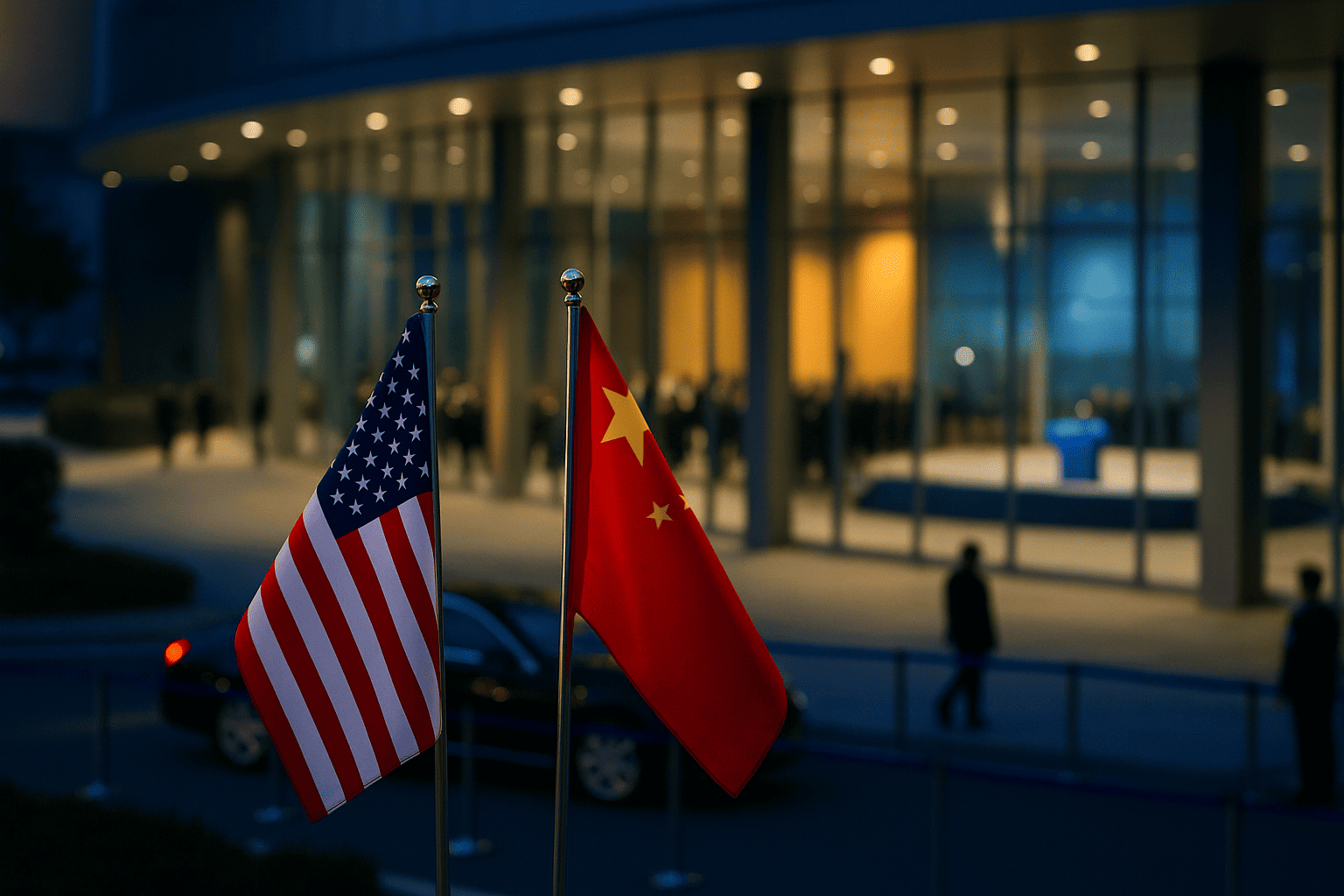Trump–Xi Summit Revives Hopes of a US–China Trade Truce
By Tredu.com • 10/30/2025
Tredu

Signals point to a narrow deal, not a grand bargain
The looming Trump–Xi summit in South Korea revived hopes that Washington and Beijing can extend a fragile tariff truce and defuse rare-earths tensions. Chinese authorities confirmed the leaders will meet, while negotiators on both sides sketched language to pause steeper US tariffs and temper China’s tightened controls on critical minerals. The messaging set expectations for an incremental trade thaw, not a sweeping pact that settles structural disputes.
What is on the table
People briefed on the talks described a framework that would freeze new US tariff escalations for a defined period, paired with steps from Beijing to keep rare-earths shipments flowing, resume selected farm purchases, and strengthen cooperation on fentanyl precursors. The scope reflects a trade truce logic that buys time and stabilizes supply chains without rewriting the rulebook on technology, investment screening, or export controls. Live coverage and subsequent readouts indicated the leaders were prepared to translate that outline into political guidance.
Rare-earths sit at the core of supply-chain risk
China dominates refining and processing of rare-earths used in magnets for vehicles, wind turbines, and electronics. Tighter Chinese controls, and threatened US retaliation, had unnerved manufacturers. Reports that a pause on export curbs is folded into the Trump–Xi summit track helped ease scarcity fears and knocked rare-earth miners, a classic sign that markets were pricing lower near-term disruption. The rare-earths export relief, if codified, would be a tangible win for supply planners across autos and energy.
Market reaction and the risk backdrop
Asian equities firmed into the meetings as traders leaned into a scenario where the leaders extend the ceasefire and script a pathway to modest tariff normalization. A concurrent Federal Reserve rate cut probability added to the bid for risk, although valuations and geopolitical noise kept moves contained. Investors remember prior cycles where optimism faded once enforcement details surfaced. For now, the Trump–Xi summit revives hopes of a US–China trade truce, and markets are prepared to reward any concrete milestones.
Why a limited truce still matters
Even a narrow tariff pause and rare-earths relief can lower volatility in shipping, inventory, and pricing. Procurement managers can trim precautionary stockpiles, and manufacturers can plan production runs with fewer tail-risk scenarios. A short extension of the ceasefire also creates a channel for follow-on technical talks in customs, testing standards, and agricultural quotas, where practical fixes can accumulate without headline drama. That said, the distance between a framework and enforceable schedules remains material.
The hard problems left for later
Technology controls, data rules, and investment screening are unlikely to be resolved in Busan. Washington’s export curbs on advanced semiconductors and tools, and Beijing’s counter-measures, sit outside the narrow trade truce calculus. So does the question of subsidy disciplines in strategic sectors. Any summit communiqué that focuses on tariffs, farm goods, and minerals will leave those issues for future rounds, which is why analysts caution against extrapolating a modest thaw into a lasting détente.
Domestic politics shape the ceiling
Both governments face domestic constraints. US officials need verification on fentanyl enforcement and credible purchase commitments to justify tariff relief. Beijing, which tightened rare-earths oversight earlier in the month, must show that any export flexibility aligns with national-security goals and industrial policy. These constraints point to a modest, verifiable package rather than broad concessions on either side.
What would count as success this week
Three markers would signal progress. First, a written leaders’ statement that fixes dates for a tariff pause review and spells out the scope of rare-earths export relief. Second, a technical annex on agricultural purchases with named products and monthly reporting. Third, a joint mechanism on fentanyl-related precursors that sets inspections, data-sharing, and penalties for non-compliance. Clear deliverables would convert improved tone into measurable outcomes.
How companies should position
Corporate playbooks center on optionality. Maintain dual-sourcing for critical inputs even if rare-earths relief lands; lock in medium-term offtake where pricing is transparent; and map tariff scenarios to inventory and pricing policies. Communication with customers should distinguish between near-term tariff relief and longer-cycle technology restrictions, since the latter continue to shape product roadmaps, certifications, and data localization choices. The tariff pause framework helps planning, but it does not unwind the strategic rivalry.
The near-term tape to watch
Traders will watch moves in rare-earth miners, US agricultural exporters, logistics stocks, and makers of permanent-magnet motors. Currency markets may price a small reduction in risk premia across Asia if the communiqué hits expected notes. Conversely, an anodyne statement without specifics could see gains fade quickly, especially in sectors most sensitive to tariff schedules and customs enforcement.
Beyond Busan: can a truce stick
History says enforcement and verification decide durability. If working groups meet on schedule, data are shared, and progress is visible, the tariff pause can roll forward. If not, rhetoric can escalate again, particularly around technology and security. The Trump–Xi summit revives US–China trade truce hopes, yet the ceiling will be set by how both sides manage flashpoints after the cameras leave.

How to Trade Like a Pro
Unlock the secrets of professional trading with our comprehensive guide. Discover proven strategies, risk management techniques, and market insights that will help you navigate the financial markets confidently and successfully.


